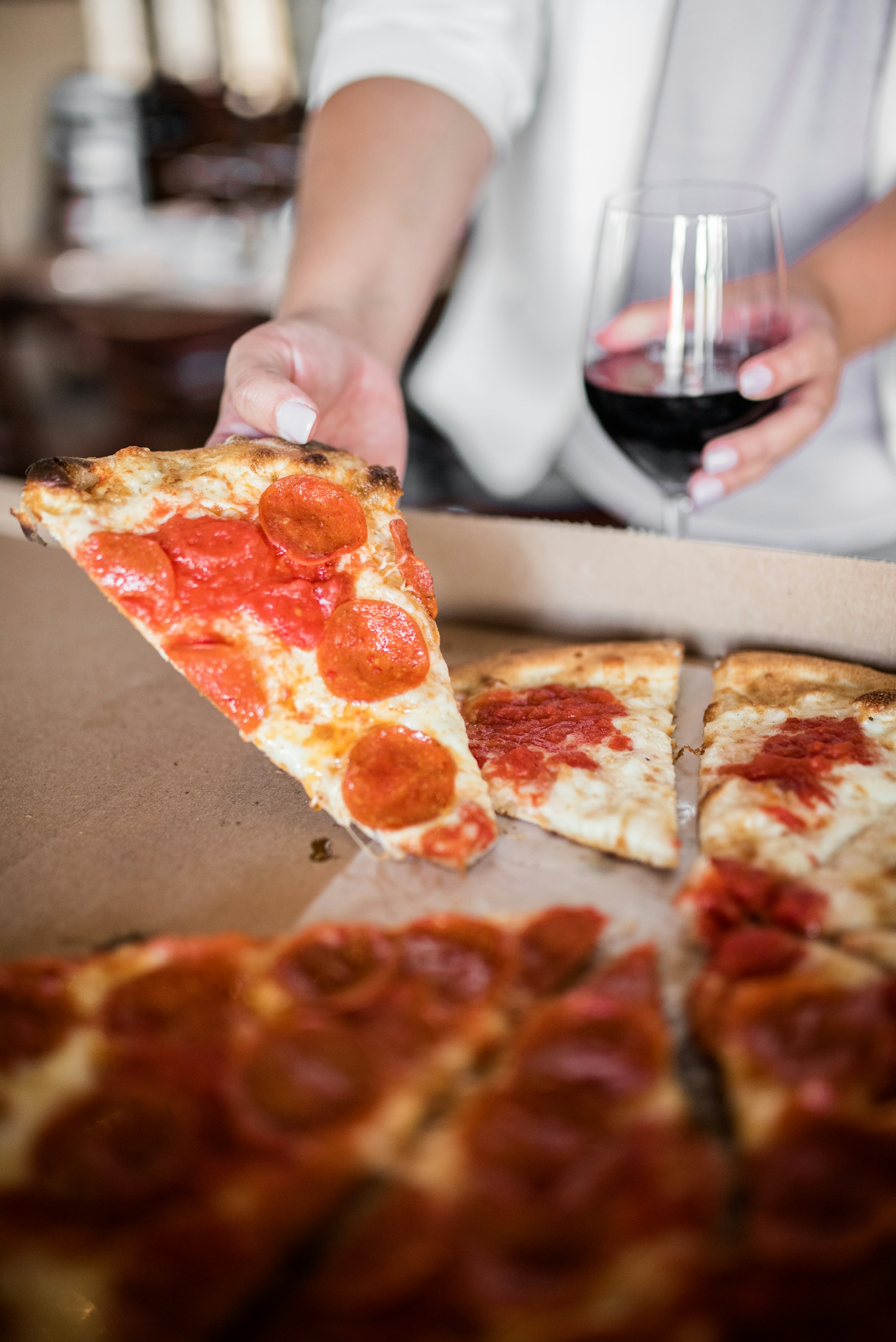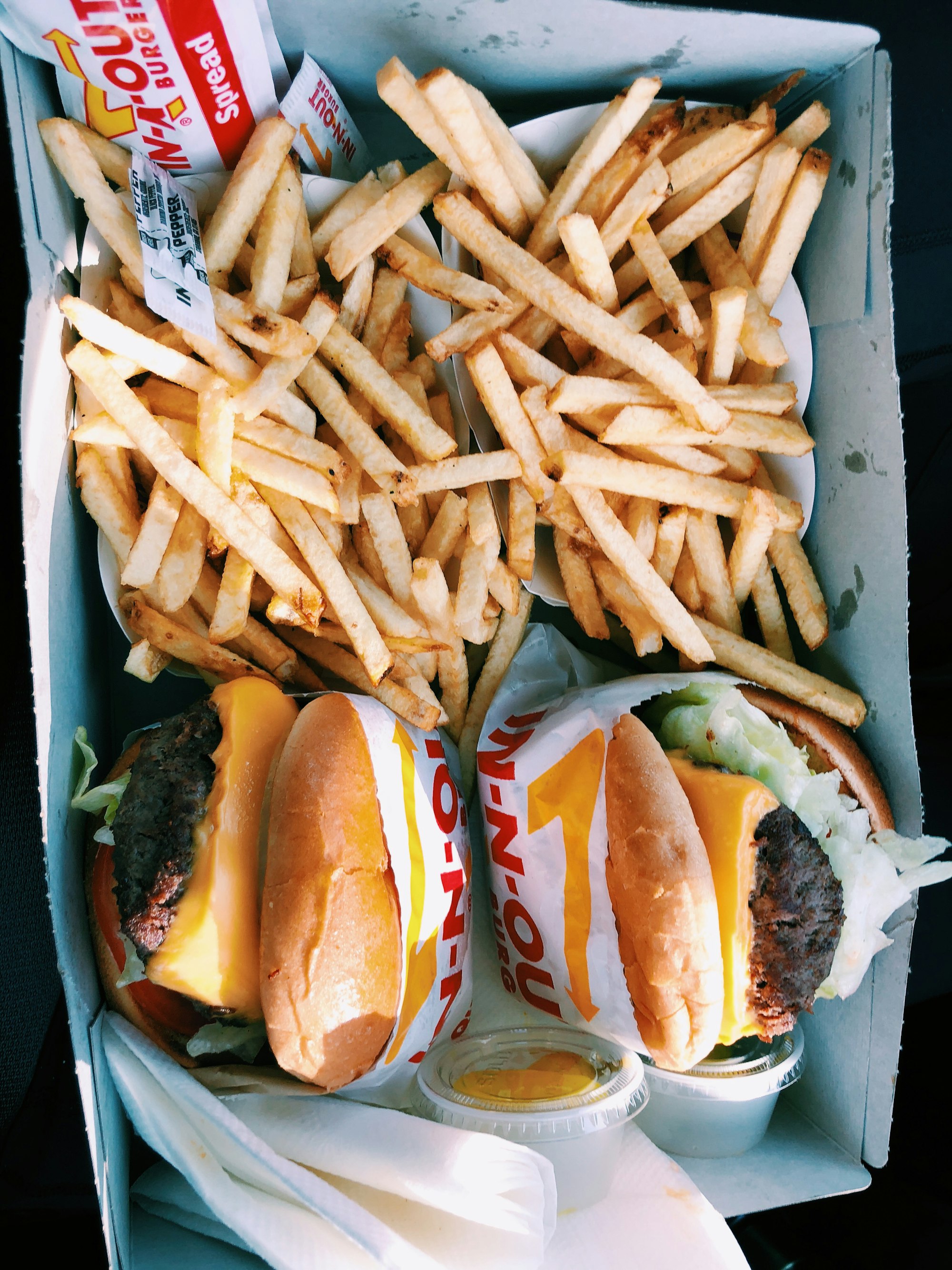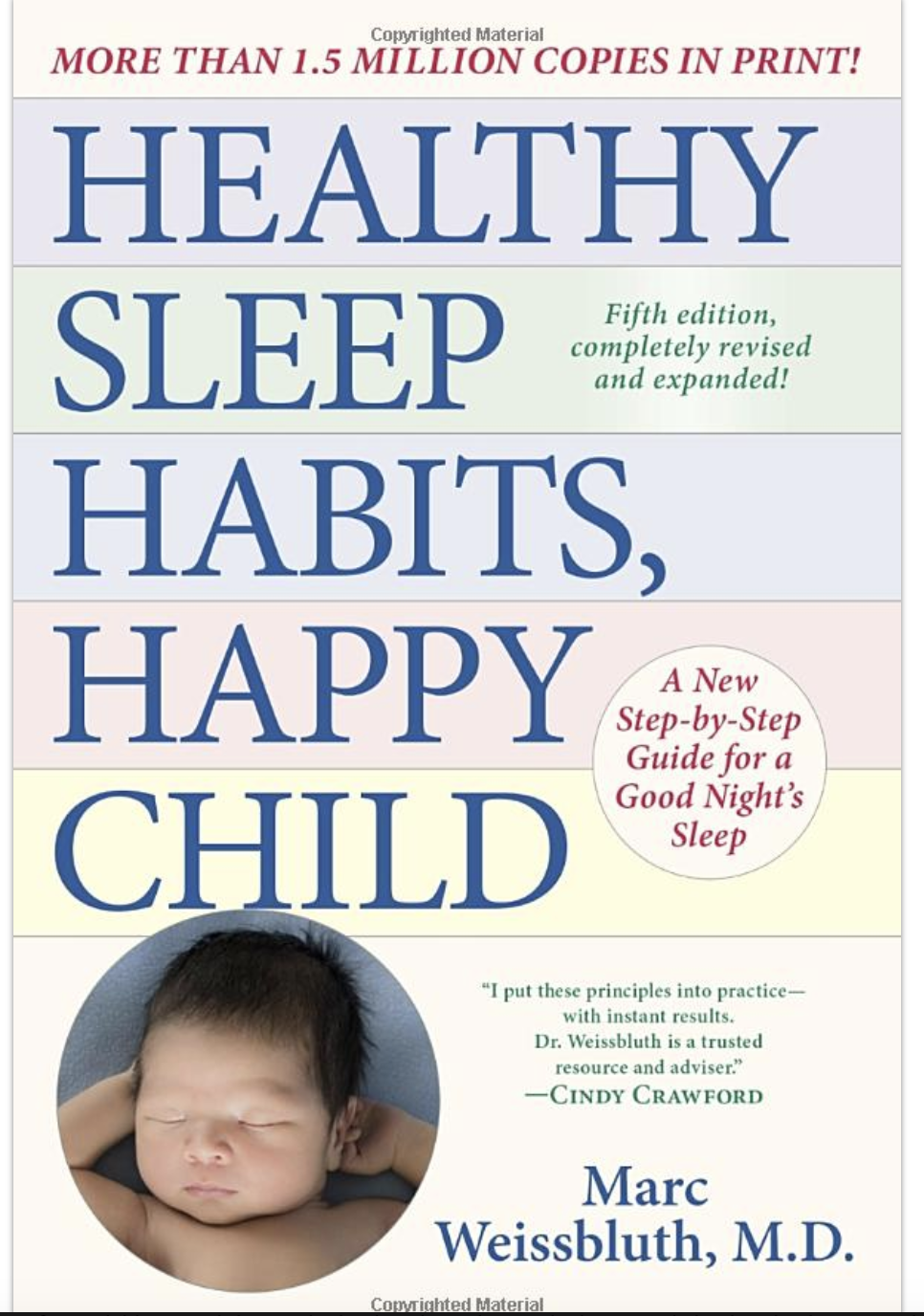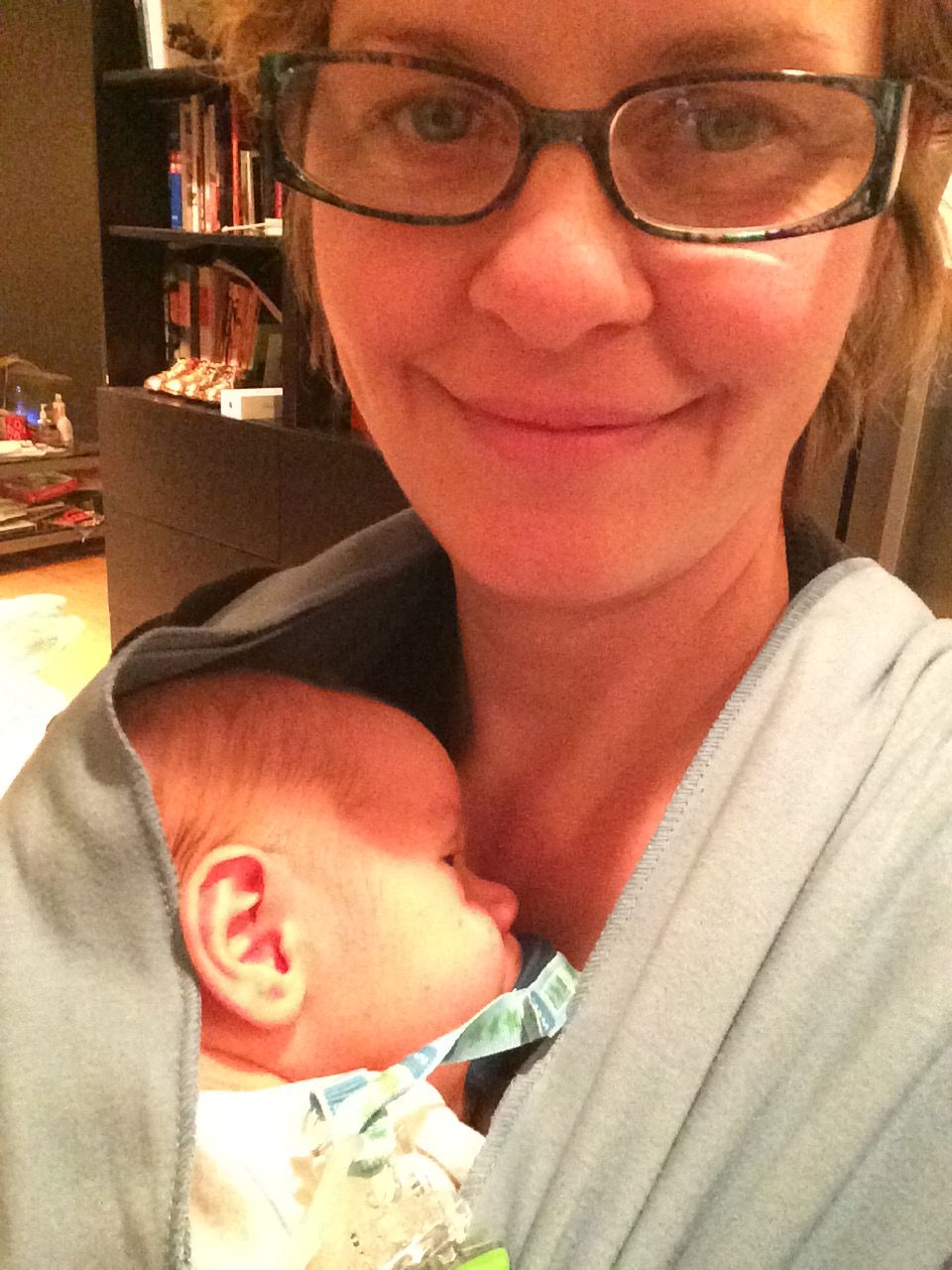How to Get Kids to Eat Anything & Sleep Through the Night
Today I want to share with you a couple of books that changed my life. Sleeping and eating are the two biggest struggles we face with our children. If you could solve those two things, how much would your life improve?

Are your children picky eaters? Do they balk when you offer them salmon or Brussels sprouts or anything other than chicken nuggets and French fries? Has mealtime with the kids become a nightmare?
How about sleep? Do they go to bed easily and sleep through the night? Or do they fight you tooth and nail? Are you exhausted from cranky babies and rambunctious toddlers who will not sleep?

Today I want to share with you a couple of books that changed my life. Sleeping and eating are the two biggest struggles we face with our children. If you could solve those two things, how much would your life improve?
The two books I'm going to share with you taught me how to raise children who love food and have no food aversions – and who have been great sleepers since they were a couple of months old. I trained both my children to sleep through the night at just 8 weeks old.
And no, we didn't do "Cry It Out" or anything like that. And both my babies were breastfed on demand.

As you will learn in this blog post, giving children what they really want, more food and more sleep, helps them learn to love food and helps them sleep better.
I know, it sounds too good to be true. But read on.
Because these methods really work. They don't work overnight. But they do work and they work like a charm.
Jump down to a section:
How to Get Kids to Eat Anything
How to Get Kids to Sleep Through the Night
How to Get Kids to Eat Anything
First, let's talk about feeding children. If you could get your kids to love food and eat whatever you serve them, how happy would you be?
"Mommy! I Want Brussels Sprouts!"
Now, don't get too excited just yet. Don't expect your 3-year-old to start begging you tomorrow for Brussels sprouts and liver and onions.
But, trust me, eventually, they will surprise you.

I will always remember the day my 4-year-old daughter and I were shopping at Whole Foods and she saw Brussels sprouts in the take-out food display.
"Mommy! I want Brussels sprouts!" she squealed.
I blushed as the other mothers looked at us with envy.
Of course, she was disappointed when we got home and she tried the Whole Foods take-out Brussels sprouts, since they were steamed.
The reason she loved Brussels sprouts is because I would always roast them in the oven with lots of butter or olive oil and sea salt. This way they were caramelized and delicious.
It Takes Time, But it Does Work
Anyway, this is how I learned that over time, exposing children to lots of delicious foods, they will eventually learn to love a variety of foods.
These methods take time, but in the long run, it will be worth it.
With the methods I'm about to reveal, you can raise children who will eat pretty much everything and will fall in love with every kind of cuisine, from Thai food to Indian to Japanese.
It is normal for toddlers to be picky, but older children will come around. My daughter was five or six when she started branching out and wanting to try different foods. My son is now eight, and while he is still somewhat picky, he will eat different things such as sushi and he loves salmon and shrimp.
This is not a race and you don't get there by pushing them. It's a long, slow process, but doing things the right way is worth it.
French Kids Eat Everything
The first book I recommend is French Kids Eat Everything, by Karen Le Billon. This is the very best book on feeding children and banishing picky eating.

Before I even read the book, this is how I intuitively raised my daughter.
I never pushed vegetables or "healthy food" on her. I never taught her there were good or bad foods.
Now, at 16, she loves food and will eat anything. Most kids her age -- especially girls -- are very picky.
And most, sadly, have eating disorders. Eating disorders that will likely stay with them for the rest of their lives.
Get French Kids Eat Everything on Amazon
Americans Have an Eating Disorder
How many grown women do you know who don't have an eating disorder?
Most women I know display signs of having an eating disorder:
- They eat salads when they don't really want salads.
- They avoid dessert at all costs.
- They eat bread only on special occasions.
- They only have a tiny bit of butter if they have any at all.
- They always talk about calories or fat or carbs -- instead of just eating what they want.
- They push themselves to go to the gym three times a week – or worse, every day – to do cycling or pilates.
And they keep gaining more and more weight.
They say it's their hormones. They try this diet, that diet, and the next weight loss plan. They read blogs and watch Instagram reels and they beat themselves up for not being able to lose that extra 20 or 50 pounds.
I Do What I Want
Meanwhile people like me eat whatever we want – bread, cheese, butter, wine, potato chips, croissants, cookies, pizza. Literally whatever I want.

I don't work out – except for walking and taking the dog and kids for bike rides.
And I don't gain weight.

Sure, I put on 20 pounds during the Plandemic – the "COVID 19" as they say. But it came right off after my divorce. Ha – that's another story which I will tell at a future time.
Suffice to to say, I believe that eating disorders are overwhelmingly psychological, not biological. And they are relatively easy to cure. (Yes, many of you have food allergies, but those are curable 99% of the time, and I'll be sharing more about how to cure food allergies on my blog in the future so stay tuned.)
Bottom line... it is much better to avoid creating eating disorders in the first place, and if we can help our children do that, it is well worth it.

Going Back to Our Roots
We Americans have become so screwed up about food, it's astonishing to me. In the book, French Kids Eat Everything, Le Billon explains that while the French have also become "modernized" when it comes to food, they are much less so than we are.
For example, the French have established mealtimes instead of constant snacking.
Also, they sit down at a table to enjoy a proper meal. They do not feed their children in the car or in strollers like we Americans with our "fast food."

I'm not saying we never eat fast food. We do. Especially lately with all the chaos in our life: divorce, moving, etc. I actually love In-n-Out.
However, I do try to prepare proper meals at the table for my children and we eat together as a family at the table at least 3-4 nights a week.

It doesn't have to be a fancy meal. Sometimes we just have chili and cheese dogs and tater tots.
Not perfect, but this is not about being perfect. It's about doing the best you can.
But the point is to have regular meal times. And to enjoy food.
The more children learn that food is enjoyable, the more good experiences they have eating food, the less stressed they will feel about food and they will normalize their relationship with food.

And the more they stay well-fed, the less stressed they become around mealtimes and in between.
Which leads us to the next concept...
Le Goûter
One of the most important concepts in French Kids Eat Everything is keeping children well-fed, and allowing them to eat delicious foods without shame or guilt.

Every day after school, French children have a sweet snack, called le goûter (luh goo-tay).

The word goûter is the French verb, to taste. Usually cookies or pastries, it's like afternoon tea in Great Britain.
Since I've started giving my kids le goûter, and they are so much happier. If I don't feed them a snack after school, they become very disagreeable by dinnertime.

In fact, I just noticed this the other day. We had plans directly after school and I only gave my son a small snack and didn't give my daughter a snack.
She said she was fine, didn't need a snack. But by the time we got to our dinner reservation at 6:30 pm, they were both so grouchy I thought I was going to go out of my mind.
And guess what? The second they started eating, they turned into sweet angels again.

And no, snacks don't spoil their dinner. They actually eat better when they have an afternoon snack.
It's just like with cranky babies. Give them more sleep and they sleep better.
So enough about food (for now – ha!)... let's talk about sleep.

How to Get Kids to Sleep Through the Night
The other book that really helped me in raising children was Healthy Sleep Habits, Happy Child by Dr. Marc Weissbluth.
This book helped me so much, in fact, I'm going to start giving it to every new mom for a shower gift.
Get Healthy Sleep Habits, Happy Child on Amazon.

It's a long book and well-worth the read, especially if you are a parent who is not getting sleep right now due to one or more children who refuse to go to bed.
The basic concept of the book is the more sleep children get, the more they sleep they will get.

It's counter-intuitive but it really works. Using this book, I had both of my children sleeping through the night by 8 weeks.
When they were babies, they slept from 5 or 6 pm until 6 in the morning.
It wasn't always this easy. When my daughter was born, I suffered for weeks until I read this book.
Then I realized I wasn't letting her sleep enough. After I read the book, I saw that I was keeping her up and she was over-tired. The more I helped her sleep, the more she would sleep. It really is that simple.
It doesn't really matter how you get them to sleep – it can be nursing, baby-wearing, co-sleeping, a pacifier, rocking, or letting them suck their thumb (both my children found their thumbs). Whatever works for you and your children.

The point is, the more you help them relax, destress, and get more sleep, the more they will sleep. Dr. Weisbluth says – and this is based on doing studies on the sleep patterns of babies and children – that when children don't get enough sleep, they become over-tired and have a hard time sleeping.
So Dr. Weisbluth advises not going out a lot, ordering food in and eating at home, and getting them down for the night as early as you can.
That's why I always put my babies to bed by 5 or 6 pm. When I tried to keep them up longer, they would be up all night. When I put them to bed early, they would sleep all the way through.

Get the Books on Amazon
Get French Kids Eat Everything on Amazon
Get Healthy Sleep Habits, Happy Child on Amazon.
When you click one of my Amazon links and purchase anything within 24 hours, I will earn a small commission as an Amazon affiliate. Thank you for helping to support me so I can continue to blog.
Share Your Thoughts in the Comments
I hope this blog post helps you or someone you know who is struggling right now with feeding children or helping them sleep.
Please leave a comment if you would like to share.



Comments ()